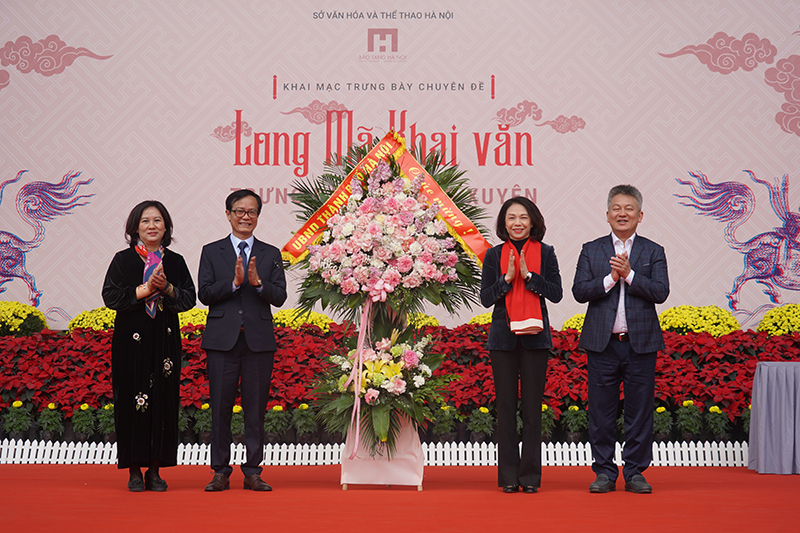Meygroup được vinh danh hai hạng mục “Dự án căn hộ cao cấp tốt nhất Hà Nội” và “Siêu dự án quy mô lớn tốt nhất” tại PropertyGuru Vietnam Awards 2025, ngày 24/10.
Năm 2025 đánh dấu lần thứ tư liên tiếp Công ty Cổ phần Bất động sản Tập đoàn Tân Á Đại Thành – Meyland (Meygroup) được vinh danh tại hệ thống Asia PropertyGuru Awards, với hai giải thưởng “Dự án căn hộ cao cấp tốt nhất Hà Nội” cho Galia Hanoi và “Siêu dự án quy mô lớn tốt nhất” cho Meyhomes Capital Phú Quốc.
Theo Ban tổ chức, mùa giải năm nay đặc biệt chú trọng các tiêu chí về phát triển bền vững, giá trị nhân văn, khả năng vận hành dài hạn và trải nghiệm sống thực tế. Các dự án được đánh giá không chỉ qua thiết kế, quy mô mà còn ở tầm nhìn đô thị toàn diện, gắn với công nghệ, môi trường và lợi ích cộng đồng.

Đại diện Meygroup nhận hai giải thưởng cho dự án Galia Hanoi và Meyhomes Capital Phú Quốc tại Vietnam PropertyGuru Awards 2025. Ảnh: Meygroup
Cụ thể, Galia Hanoi được Meygroup phát triển theo triết lý “Bất động sản Tinh khiết”, hướng tới sức khỏe và chất lượng sống của cư dân. Dự án tọa lạc trên đường Đỗ Mười (phường Hoàng Mai), nằm trong lõi tuyến Vành đai 3, sở hữu hơn 50 tiện ích và cảnh quan do Belt Collins (Singapore) tư vấn thiết kế.
Với ý tưởng “khu rừng xanh giữa lòng phố thị”, Galia Hanoi mang đến không gian sống cân bằng giữa thiên nhiên, công nghệ và con người, đồng thời kiến tạo cộng đồng cư dân văn minh.

Dự án Galia Hanoi được vinh danh “Căn hộ cao cấp tốt nhất Hà Nội”. Ảnh phối cảnh: Meygroup
Meyhomes Capital Phú Quốc – đại đô thị gần 266 ha tại trung tâm đảo Ngọc – được trao danh hiệu “Siêu dự án quy mô lớn tốt nhất”. Dự án được quy hoạch bài bản, xây dựng theo tiêu chuẩn quốc tế và vận hành hiện đại, hướng tới trở thành trung tâm kinh tế, văn hóa, hành chính mới của Phú Quốc. Đây là minh chứng cho chiến lược phát triển đô thị bền vững mà Meygroup theo đuổi, với mục tiêu xây dựng đô thị xanh, thông minh và đáng sống.

Meyhomes Capital Phú Quốc được vinh danh là “Siêu dự án quy mô lớn tốt nhất”. Ảnh phối cảnh: Meygroup
Tại sự kiện nhận giải tối 24/10, ông Đặng Quang Minh, Phó chủ tịch Meygroup cho biết việc tiếp tục được vinh danh tại PropertyGuru Vietnam Awards năm thứ tư liên tiếp thể hiện nỗ lực của doanh nghiệp trong hành trình kiến tạo đô thị đáng sống mang tầm quốc tế.
Ông nhấn mạnh, Meygroup sẽ kiên định phát triển đô thị gắn với công nghệ, môi trường và văn hóa Việt, hướng đến mục tiêu cùng Tập đoàn Tân Á Đại Thành nâng chuẩn đô thị Việt lên tầm khu vực.

Ông Đặng Quang Minh, Phó chủ tịch Meygroup phát biểu khi nhận giải. Ảnh: Meygroup
Hai giải thưởng tại PropertyGuru Vietnam Awards 2025 tiếp tục khẳng định năng lực phát triển dự án, tầm nhìn chiến lược và giá trị thương hiệu của Meygroup.
“Với triết lý ‘Kiến tạo chuẩn sống mới’, Meygroup đang từng bước định hình diện mạo đô thị hiện đại, nơi mỗi công trình không chỉ là kiến trúc mà còn là không gian sống nhân văn, bền vững và mang dấu ấn Việt”, ông Minh nói.
Lễ trao giải Vietnam PropertyGuru Awards thuộc hệ thống Asia PropertyGuru Awards, quy tụ các doanh nghiệp lớn trong lĩnh vực bất động sản, được tổ chức thường niên từ năm 2015. Giải thưởng nhằm tôn vinh các chủ đầu tư có đóng góp cho sự phát triển bền vững của thị trường và định hình chuẩn mực sống mới cho người Việt.
Thái Anh

